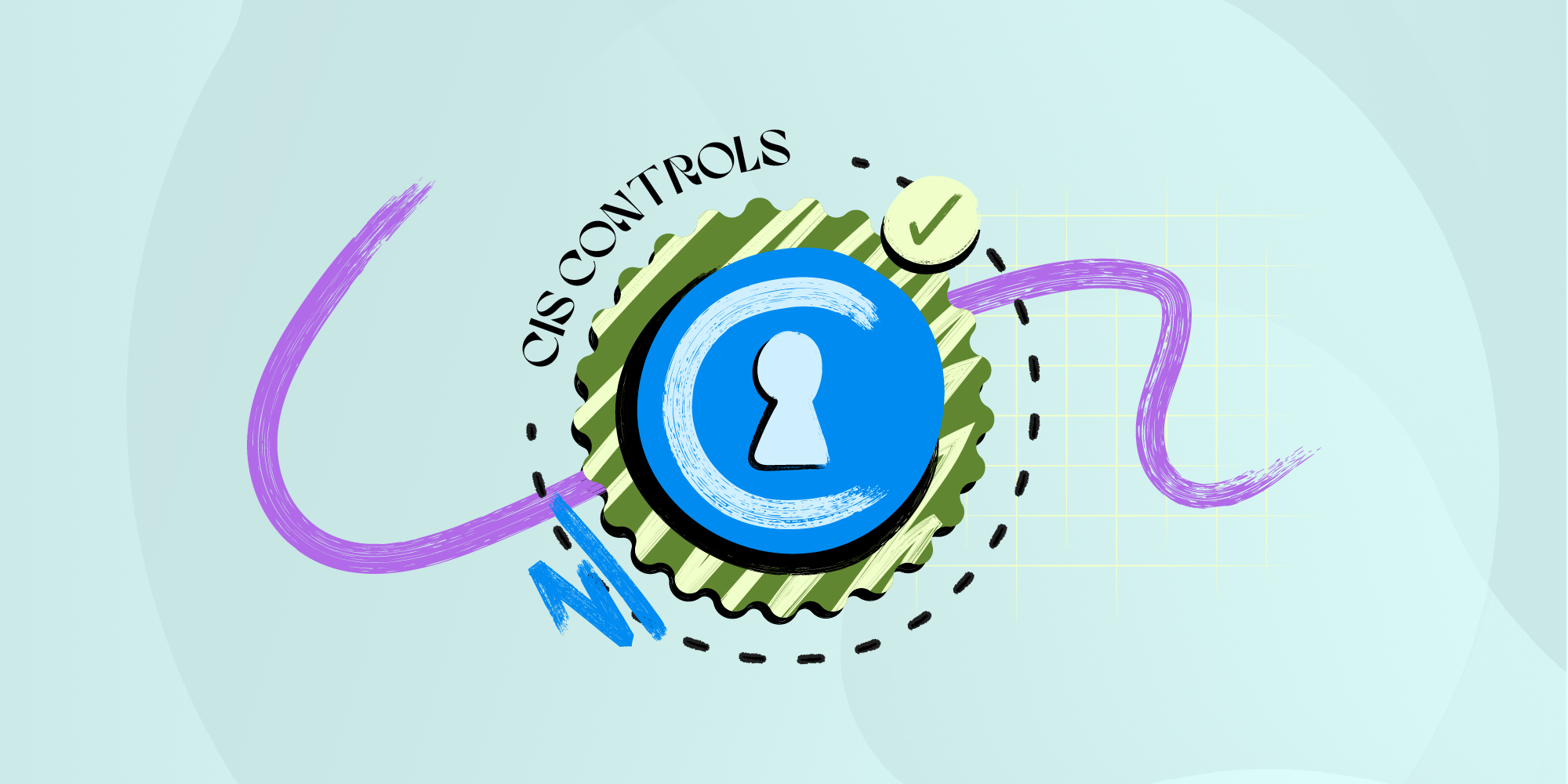Businesses are constantly navigating the complex waters of cybersecurity. That's were a Business Information Security Officer (BISO) can make a difference. It's a role that's gaining traction for its unique blend of business acumen and security expertise.
But what exactly does a BISO do, and why is this role becoming so crucial? In this article, we'll unravel the intricacies of the BISO role, its necessity, and how it stacks up against other security positions. Also, we'll cover their responsibilities, the skills they bring to the table, and the potential career path this role offers.
Let's go!

What is a Business Information Security Officer (BISO)?
A Business Information Security Officer (BISO) acts as the bridge between the IT security team and the business side of an organization. Unlike traditional security roles that focus solely on technology, a BISO ensures that security strategies align with business goals and operations. They work closely with various departments to integrate security measures that support the organization's objectives while mitigating risks.
The BISO's role is multifaceted, encompassing Risk Management, policy development, and stakeholder communication. They must possess a deep understanding of both cybersecurity principles and business operations to effectively harmonize the two. The BISO ensures that security policies not only protect the company’s assets but also enable smooth business operations, fostering a security-first culture within the organization.
Is the Business Information Security Officer (BISO) really necessary?
The necessity of a BISO often sparks debate within organizations. Some argue that traditional security roles, such as the Chief Information Security Officer (CISO), are sufficient. However, the BISO role offers a unique perspective by embedding security within business processes, making it an essential component for many companies.
Organizations with complex structures or those undergoing digital transformation particularly benefit from having a BISO. This role ensures that security considerations are not an afterthought but an integral part of business planning and execution. In an era where cyber threats are increasingly sophisticated, having a BISO means that security measures evolve alongside business strategies.
However, the necessity of a BISO can depend on the organization's size, industry, and risk profile. For smaller companies or those with less complex operations, the existing security infrastructure might suffice. Yet, for large enterprises, especially those in heavily regulated industries like finance or healthcare, the BISO role becomes indispensable. The integration of security into every facet of the business not only protects assets but also builds trust with clients and stakeholders.
Placing a BISO within the organizational hierarchy can be challenging. Should they report to the CISO, the CIO, or directly to the CEO? The answer varies, but one thing is clear: the BISO's influence should span across both IT and business units to be effective. This dual reporting structure ensures that security measures align with business goals and receive the necessary support from top management.
The role of the Business Information Security Officer (BISO)
The BISO's primary responsibility is to align security initiatives with business objectives. This involves developing and implementing security policies that support the company's goals. They also play a crucial role in risk management, identifying potential threats, and devising strategies to mitigate them.
In addition to policy development, BISOs are tasked with educating employees about security best practices. They collaborate with different departments to ensure that security measures are practical and do not hinder business operations. Communication is key in this role, as BISOs must effectively convey security risks and strategies to both technical and non-technical stakeholders.
Furthermore, the BISO is responsible for incident response planning and coordination. In the event of a security breach, the BISO leads the response efforts, working closely with IT and other departments to contain and remediate the threat. This proactive approach helps minimize the impact of security incidents on business operations and enhances the organization’s resilience.
BISOs also oversee compliance with relevant regulations and standards. They ensure that the organization adheres to legal requirements and industry best practices, reducing the risk of fines and reputational damage. This involves regular audits and assessments to identify gaps and implement corrective measures.

Business Information Security Officer (BISO) skillset
A successful BISO needs a diverse set of skills. These skills range from technical know-how to business acumen and effective communication.
1. Technical expertise
BISOs need a strong foundation in cybersecurity principles and practices. This includes knowledge of threat management, incident response, and security frameworks. They should be well-versed in the latest security technologies and methodologies, enabling them to design and implement robust security measures.
2. Business acumen
Understanding the business side is crucial. BISOs must grasp how different business units operate and how security measures can support their objectives. This involves a deep understanding of business processes, financial principles, and strategic planning. BISOs use this knowledge to align security initiatives with business goals, ensuring that security enhances rather than hinders business operations.
3. Risk Management
Identifying, assessing, and mitigating risks are core components of the BISO role. This involves developing strategies to handle potential security threats effectively. BISOs must be adept at conducting risk assessments, prioritizing risks based on their potential impact, and implementing controls to mitigate them. This proactive approach helps prevent security incidents and reduces the organization's overall risk exposure.
4. Communication skills
BISOs must communicate complex security concepts in a way that non-technical stakeholders can understand. This ensures that everyone in the organization is on the same page regarding security initiatives. Effective communication is also essential for fostering a security-first culture, where employees understand their role in protecting the organization’s assets.
5. Policy development
Creating and implementing security policies that align with business goals is a key responsibility. BISOs need to ensure these policies are practical and enforceable. This involves collaborating with various departments to develop policies that address specific security needs while supporting business operations. Regular reviews and updates of these policies ensure they remain effective in the face of evolving threats.
Technical expertise
Technical expertise is the foundation of a BISO's skill set. They must have a deep understanding of cybersecurity principles and practices, including threat management, incident response, and security frameworks. This knowledge allows them to design and implement robust security measures that protect the organization’s assets.
BISOs should stay up-to-date with the latest security technologies and methodologies. This involves continuous learning and professional development to keep pace with the rapidly evolving cybersecurity landscape. By staying informed about emerging threats and trends, BISOs can proactively address potential security risks and ensure their organization’s defenses are always current.
Unlocking Career Progression
Discover the strategies to lifelong learning and evolvement in IT
Download for free
Business acumen
Business acumen is equally important for a BISO. They must understand how different business units operate and how security measures can support their objectives. This involves a deep understanding of business processes, financial principles, and strategic planning.
BISOs use their business knowledge to align security initiatives with organizational goals. They work closely with business leaders to ensure that security measures enhance rather than hinder business operations. This collaborative approach helps integrate security into the fabric of the organization, making it an essential component of business strategy.
Risk Management
Risk Management is a critical aspect of the BISO role. BISOs must be adept at identifying, assessing, and mitigating risks. This involves conducting risk assessments, prioritizing risks based on their potential impact, and implementing controls to mitigate them.
BISOs develop strategies to handle potential security threats effectively. This proactive approach helps prevent security incidents and reduces the organization’s overall risk exposure. By continuously monitoring and managing risks, BISOs ensure that the organization remains resilient in the face of evolving threats.
Communication skills
Effective communication is essential for BISOs. They must be able to convey complex security concepts in a way that non-technical stakeholders can understand. This ensures that everyone in the organization is on the same page regarding security initiatives.
BISOs use their communication skills to foster a security-first culture within the organization. They educate employees about security best practices and the importance of protecting the organization’s assets. By promoting awareness and understanding, BISOs help create an environment where security is a shared responsibility.
Policy development
Policy development is a key responsibility of the BISO. They must create and implement security policies that align with business goals. This involves collaborating with various departments to develop policies that address specific security needs while supporting business operations.
BISOs ensure that security policies are practical and enforceable. Regular reviews and updates of these policies ensure they remain effective in the face of evolving threats. By establishing clear guidelines and procedures, BISOs help create a structured and consistent approach to security across the organization.

BISO vs. CISO: What’s the difference?
The Business Information Security Officer (BISO) and the Chief Information Security Officer (CISO) both play pivotal roles in an organization's security framework. However, their focuses differ significantly. The CISO is primarily responsible for the overall security strategy and the management of the IT security team. They ensure that the organization's data and systems are protected from cyber threats.
On the other hand, the BISO acts as a liaison between the security team and business units. Their role is more about integrating security into business processes and ensuring that security measures support business objectives. While the CISO focuses on the technical side of security, the BISO ensures that security is a business enabler.
The CISO is often seen as the top authority on security within an organization. They oversee the development and implementation of the overall security strategy, manage the IT security team, and ensure compliance with relevant regulations and standards. The CISO is responsible for protecting the organization’s data and systems from cyber threats and ensuring the overall security posture is robust.
In contrast, the BISO’s role is more focused on bridging the gap between IT security and business operations. They work closely with business units to integrate security into business processes, ensuring that security measures support business objectives. The BISO’s primary responsibility is to align security initiatives with business goals, making security an integral part of the organization’s strategy.
While the CISO and BISO roles have distinct focuses, they are complementary. Both positions are essential for a comprehensive security framework. The CISO provides the overall security strategy and technical oversight, while the BISO ensures that security is integrated into business operations and supports organizational goals.

Certifications for Business Information Security Officers (BISO's)
Certifications can significantly enhance a BISO's credentials. Here are some valuable certifications for aspiring BISOs:
1. Certified Information Systems Security Professional (CISSP)
This certification is essential for professionals in the information security field. It covers a wide range of security topics and is globally recognized. CISSP certification demonstrates a comprehensive understanding of security principles and practices, making it a valuable credential for BISOs.
2. Certified Information Security Manager (CISM)
Focused on management, this certification is ideal for those looking to bridge the gap between IT security and business objectives. CISM certification emphasizes the importance of aligning security initiatives with business goals, a core responsibility of the BISO role.
3. Certified in Risk and Information Systems Control (CRISC)
This certification is tailored for professionals involved in risk management and control. CRISC certification demonstrates a deep understanding of risk assessment and mitigation, key skills for BISOs responsible for managing security risks within an organization.
4. Certified Information Systems Auditor (CISA)
CISA certification is crucial for those who want to specialize in information systems auditing, control, and assurance. This certification is valuable for BISOs who oversee compliance with relevant regulations and standards, ensuring that the organization adheres to legal requirements and industry best practices.
5. Certified Ethical Hacker (CEH)
CEH certification provides a solid foundation in ethical hacking and penetration testing. This certification equips BISOs with the skills needed to identify vulnerabilities and assess the security posture of the organization’s systems and networks.
6. Certified Cloud Security Professional (CCSP)
As organizations increasingly adopt cloud technologies, CCSP certification becomes highly valuable. This certification demonstrates expertise in cloud security principles and practices, enabling BISOs to effectively manage the security of cloud environments.

Business Information Security Officer (BISO) salary ranges
Salaries for BISOs can vary widely based on factors such as experience, location, and industry. On average, BISOs can expect to earn between $120,000 and $180,000 annually. In high-demand markets or industries, salaries can exceed this range, reflecting the critical nature of the role.
Factors influencing salary include the size of the organization, the complexity of its security needs, and the BISO's level of experience and expertise. Certifications and advanced degrees can also enhance earning potential. For instance, a BISO with a CISSP certification and several years of experience in a large financial institution is likely to command a higher salary compared to a less experienced BISO in a smaller organization.
Geographical location also plays a significant role in determining salary ranges. BISOs working in major tech hubs or cities with a high cost of living, such as San Francisco or New York, typically earn higher salaries. Conversely, BISOs in smaller cities or regions with a lower cost of living may earn less, even if they have similar qualifications and experience.

Conclusion
The role of the Business Information Security Officer (BISO) is evolving as businesses increasingly recognize the importance of integrating security with their operations. BISOs play a crucial role in bridging the gap between IT security and business objectives, ensuring that security measures support rather than hinder business growth. As organizations continue to face sophisticated cyber threats, the demand for skilled BISOs is likely to grow.
By understanding the unique responsibilities and skillsets of BISOs, businesses can better appreciate their value and make informed decisions about incorporating this role into their security framework. Whether it’s aligning security initiatives with business goals, managing risks, or ensuring compliance with relevant regulations, BISOs are essential for creating a resilient and secure organization.
Frequently Asked Questions (FAQs)
1. What is the primary difference between a BISO and a CISO?
The main difference lies in their focus. A BISO integrates security with business processes, while a CISO oversees the overall security strategy and IT security team.
2. What skills are essential for a BISO?
Essential skills include technical expertise, business acumen, risk management, communication skills, and policy development.
3. Are BISOs necessary for all organizations?
The necessity of a BISO depends on the organization's size, complexity, and risk profile. However, many organizations benefit from the unique perspective BISOs offer.
4. What certifications are valuable for a BISO?
Valuable certifications include CISSP, CISM, CRISC, CISA, CEH, and CCSP.
5. How much does a BISO typically earn?
Salaries for BISOs range between $120,000 and $180,000 annually, depending on factors like experience, location, and industry.















